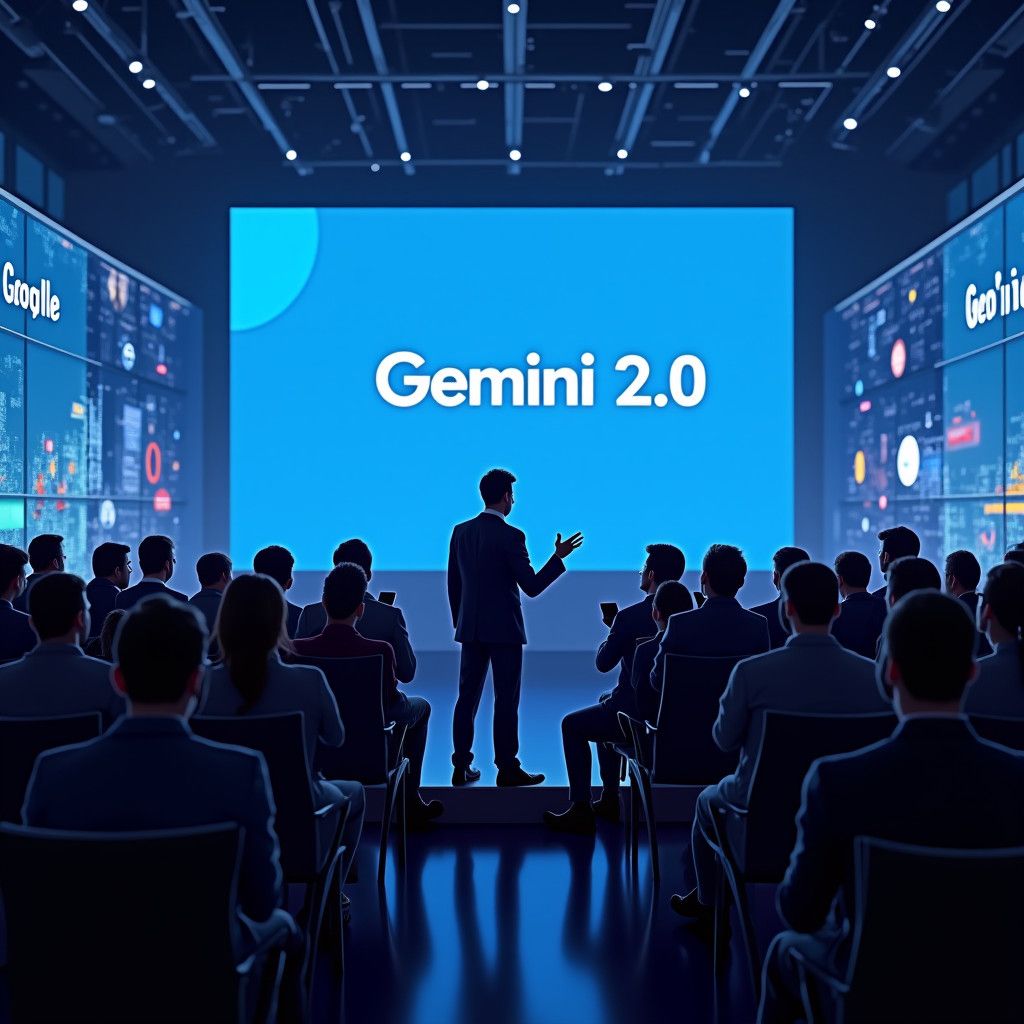On December 16, 2024, Google made headlines with the launch of its highly anticipated Gemini 2.0, an advanced AI model that aims to integrate artificial intelligence into everyday tools and applications. This significant development reflects Google’s commitment to pushing the boundaries of technology while enhancing user experience across various platforms.
Gemini 2.0 is positioned as a direct competitor to OpenAI’s GPT-4 and other AI systems. Unlike its predecessor, Gemini 1.0, this updated version brings several enhancements, including improved multi-modal capabilities that can interpret both text and images. For instance, users can now input a photograph and receive insights or information about the objects displayed within, making it a versatile tool for education and everyday queries.
One of the standout features of Gemini 2.0 is its incorporation into practical applications. Google has identified key areas where AI can significantly impact user lifestyles. Notably, the introduction of Project Astra showcases AI-enhanced eyeglasses designed to provide real-time information and navigation assistance. Imagine wearing a pair of glasses that can read the text of a street sign or assist in finding directions without taking your phone out. This potential transformation in personal navigation and information access can empower individuals in numerous ways.
Furthermore, the universal assistant created by Google aims to streamline everyday tasks. With its ability to integrate across multiple devices, users can expect a seamless experience. For example, a user can begin a task on their smartphone, then continue on their desktop without losing context or functionality. This level of connectivity can boost productivity and efficiency, particularly for professionals managing multiple responsibilities.
The applications of Gemini 2.0 extend into creative realms as well. Google has introduced features that aid in content creation, allowing users to generate text, edit images, or even propose design changes in real-time. This capacity is beneficial not only for individual users but also for businesses looking to enhance their content marketing strategies. By leveraging Gemini 2.0, companies can streamline workflows, reduce time spent on creative processes, and produce content that resonates better with their target audiences.
Moreover, Google has prioritized ethical considerations surrounding AI. With concerns about data privacy and algorithmic bias prevalent in today’s discussions about technology, Gemini 2.0 incorporates mechanisms for transparency. Users can gain insights into how data is processed and how outcomes are generated, ensuring that artificial intelligence operates within ethical boundaries. This step is crucial in fostering trust among consumers weary of how their data might be used.
To illustrate the tangible advantages of Gemini 2.0, consider a scenario involving a small business owner. With the new AI features, this entrepreneur can utilize the universal assistant to draft marketing emails, analyze customer feedback in real-time, and even design promotional materials—all through an intuitive interface that simplifies complex tasks. The time saved from these processes can be redirected toward strategic planning and personal engagement with clients, enhancing the overall quality of service.
In addition to immediate business applications, the long-term implications of Gemini 2.0 on the workforce cannot be overlooked. As artificial intelligence systems integrate deeply into operational frameworks, there will be a noticeable shift in job roles. Workers will increasingly focus on tasks requiring emotional intelligence, creativity, and strategic thinking—areas where human skills still outperform machines.
Indeed, the introduction of Gemini 2.0 represents a critical juncture in the AI landscape. By combining functionality with ethical considerations, Google sets a precedent for how future developments in artificial intelligence should be approached. As companies navigate this changing terrain, the integration of multifaceted AI solutions like Gemini 2.0 will likely become essential for maintaining competitive advantages.
In conclusion, Google’s unveiling of Gemini 2.0 marks a significant advancement in the application of artificial intelligence across various sectors. Its powerful capabilities promise to change the way we interact with technology, enhancing both personal and professional experiences while ensuring that ethical standards are a cornerstone of innovation. As businesses and individuals alike prepare to adapt to these changes, Gemini 2.0 stands as a prime example of how AI can be harnessed for practical and transformative purposes.












